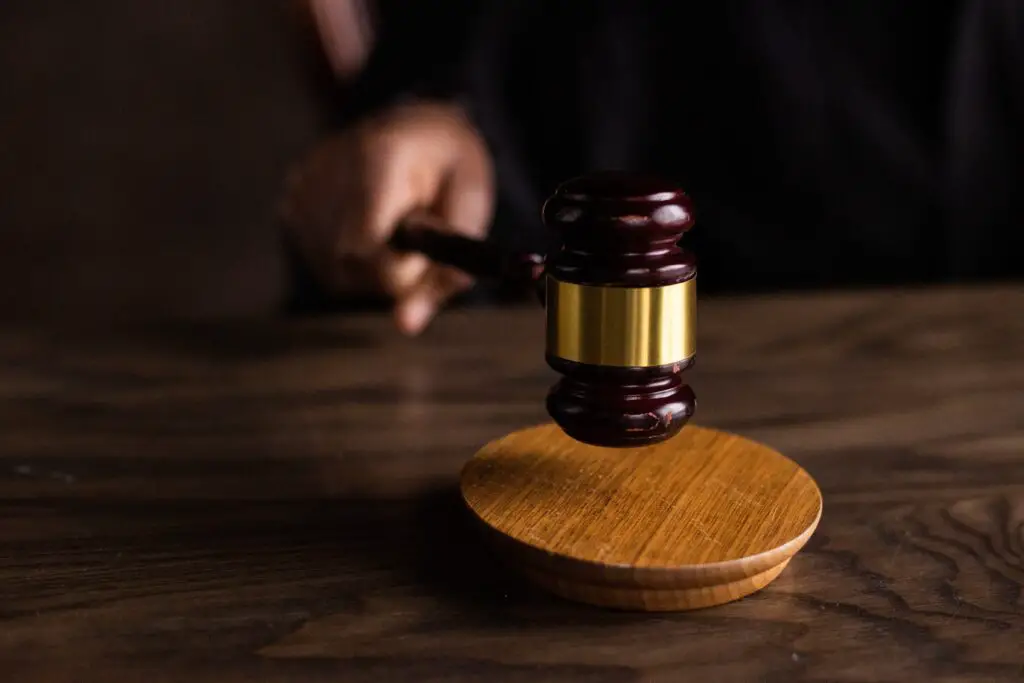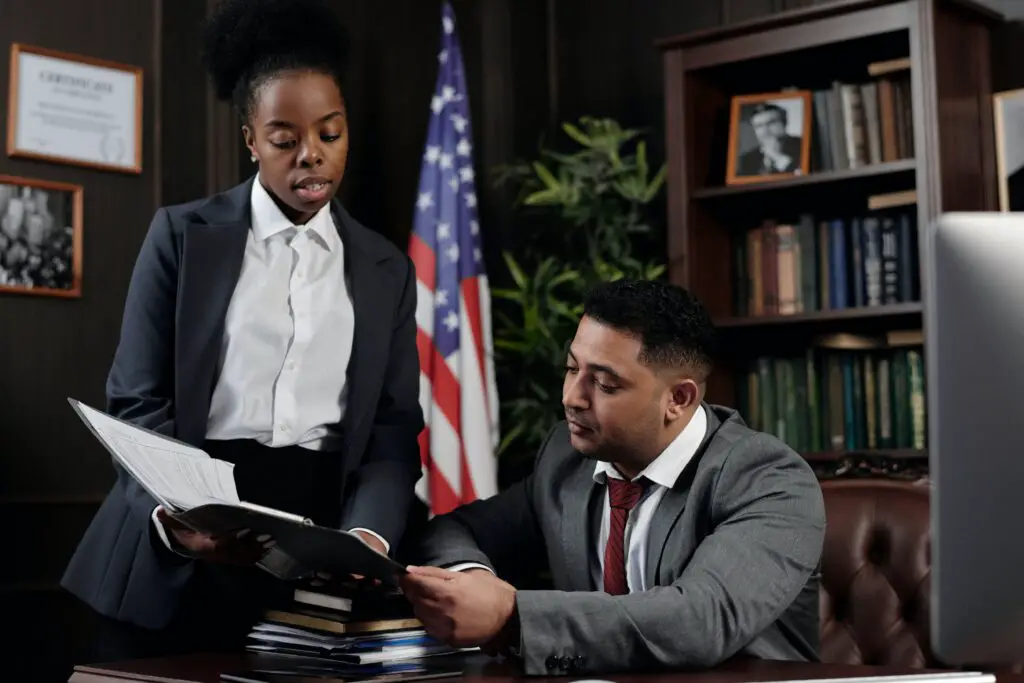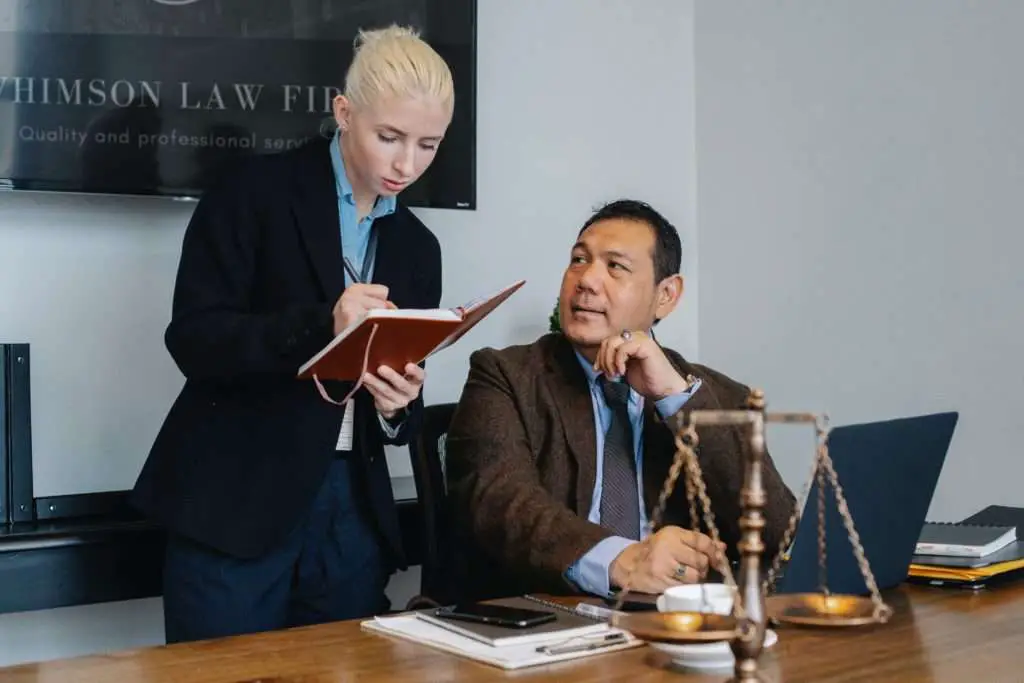It’s a hard pill to swallow, but the reality is that in family courts, those who’ve suffered under narcissistic abuse often find themselves in a rough spot. The term “Court Punishes Survivors of Narcissistic Abuse” is more than just a headline; it’s a harsh reality for many folks out there. This exploration is about shedding light on why family courts can feel like hostile territory for survivors of narcissistic abuse and offering some guidance on how to tackle these tough situations.

Table of Contents
Understanding Narcissistic Abuse in the Family Court System
Picture this: you’re in a relationship where your partner holds all the strings – they’re the puppet master, and you’re the puppet. This is what life can look like when you’re with a narcissistic abuser. You’re caught in a cycle of emotional manipulation, gaslighting, and psychological control. It’s like being handcuffed with invisible chains. You feel unheard and unseen, especially when it comes to the law. You try to explain your situation, but it’s tough when there are no physical scars to show – your pain is deep inside, hidden from view. This is the challenge many face in family court, where the focus often leans heavily on physical evidence, leaving those suffering from psychological abuse feeling lost and voiceless.
The Legal System’s Blind Spot
It’s like stepping out of the frying pan and into the fire. You leave a toxic relationship, thinking the worst is behind you, but then you enter the courtroom, and it’s a whole new battle. Here’s the thing – courts often don’t get the full picture of what narcissistic abuse is all about. This kind of abuse doesn’t leave bruises or broken bones. It messes with your mind.
The scars are internal, making them super hard to show and prove in court. It’s like trying to describe a ghost; everyone knows it’s there, but nobody can see it. This invisibility makes psychological abuse easy to overlook and dismiss. The court often looks for concrete evidence, but how do you show the depth of the mind games and emotional torture you’ve been through? It’s a blind spot in the legal system that too many survivors of narcissistic abuse stumble into.
When Speaking Up Feels Like Losing Ground
Let me tell you about Sarah, a client of mine. She’s one of many who’ve walked through the thorny path of family court after enduring narcissistic abuse. Sarah’s ex was the kind of guy who could sell ice to Eskimos – charming, convincing, and a master at spinning stories. In court, he twisted the facts so well that even Sarah started doubting her own mind. It’s classic gaslighting, but this time it was happening right there in the courtroom. Sarah felt like she was being victimized all over again, but this time with a judge and lawyers as the audience. It’s heartbreaking and infuriating. You stand there, trying to tell your truth, but it feels like sinking sand.
Every word you say seems to pull you deeper, making you feel smaller and less believable. It’s a cruel irony – the very place that should be your refuge, the court, becomes a stage where the narcissist can perform one final act of control and manipulation.
The Courtroom as a Stage for the Narcissist in Family Court
Imagine this scenario in a family court: you’re facing a narcissist who’s now delivering an Oscar-worthy performance. They adeptly switch roles between victim and hero in the courtroom, tailoring their act to what they think will win the judge’s sympathy. This is their stage, and they excel at it, expertly twisting stories and playing on emotions. Before long, they have the family court wrapped around their finger.
This is how courtrooms become a playground for those skilled in narcissistic abuse. With their charm and deceit, they manipulate the narrative, often making the true victim – in this case, you – appear to be in the wrong. It’s disheartening how often these theatrics influence court decisions, not based on the truth, but on these convincing performances. These rulings in family court are not just emotionally damaging; they have the potential to alter lives significantly. You’re left as a spectator in a twisted play, helplessly watching the script of narcissistic abuse unfold against you.
Proving Narcissistic Abuse in Family Court
Gathering Evidence Against the Invisible Bully
Proving narcissistic abuse in a family court setting is like trying to capture mist – it’s palpable but challenging to hold onto. You stand in court, recounting the mental manipulations and the emotional turmoil you’ve endured, but it often boils down to your word against theirs. Demonstrating the impact of abuse that doesn’t leave physical traces is a daunting task. The approach lies in meticulously documenting every interaction – texts, emails, anything that can paint a picture of the abuse.
Notes from therapists or counselors who have insight into the situation are invaluable. Keeping a detailed diary is like assembling the pieces of a complex puzzle. Over time, these documented pieces can coalesce into a comprehensive narrative that family court can recognize and understand. Building a case against narcissistic abuse requires perseverance and detailed evidence, but it’s a crucial step in portraying the full extent of the psychological damage for the court.
The Challenge of Bringing Psychological Expertise into the Family Courtroom
Introducing a psychologist’s expert testimony in family court about narcissistic abuse can significantly shift perspectives. It’s akin to having an interpreter in a situation where a foreign language is spoken; they can clarify the complex psychological manipulation and tactics employed by a narcissist in a manner that the family court can comprehend.
However, the challenge lies in the fact that this form of expertise is not always given the weight it deserves. Some individuals within the legal system fail to understand the significance of psychological insight in cases of narcissistic abuse. They often view psychological abuse as less concrete than physical harm, overlooking the profound and lasting damage it inflicts. The role of these experts is pivotal; they illuminate the hidden psychological injuries for everyone in the courtroom to see. The value of such testimony in cases of narcissistic abuse is immeasurable, yet there is still a long journey ahead to make this a standard and recognized practice in family court.

Do Judges in Family Court See Through the Facade of Narcissistic Abuse?
In family court, when dealing with cases involving narcissistic abuse, the ability of judges to see through the facade varies significantly. Some judges are exceptionally perceptive, able to detect manipulation and resist the allure of a narcissist’s charm. However, not all judges possess this level of insight. Many can be swayed by a narcissist’s convincing performance, mistaking it for sincerity. This inconsistency highlights the need for enhanced training in family court for judges and legal professionals. It’s essential for them to understand the intricacies of narcissistic abuse – the mind games and emotional manipulation – because the reality in these situations is often masked by appearances.
Case Studies: When the Mask Slips in Family Court
Occasionally, in the family court setting, there are pivotal moments when a narcissist’s facade crumbles, revealing their true nature. These instances, akin to a dramatic scene in a movie, can significantly impact the court’s perception, often shifting the outcome in favor of the survivor of narcissistic abuse. Unfortunately, these revealing moments are not commonplace. Narcissists are typically careful to maintain their deceptive exterior. However, it’s these rare instances of unguarded truth that underscore the importance of continuing to raise awareness and understanding of narcissistic abuse within the family court system.
Systemic Flaws and Their Consequences in Family Court
Survivors who confront their abuser in family court often face dual challenges. They are not only battling their abuser but also grappling with systemic biases within the legal system. There’s a prevalent misconception that if abuse isn’t visible, it’s less severe. This mindset can lead to family court decisions that doubly victimize the survivor – first by the abuser and then by the system that fails to acknowledge the severity of narcissistic abuse. Changing the narrative and understanding within the family court regarding narcissistic abuse is vital, not just for winning cases but for acknowledging and validating the experiences of survivors.
The Domino Effect on Families in Cases of Narcissistic Abuse
When family court decisions fail to appropriately address narcissistic abuse, the repercussions extend beyond the immediate victim. It creates a domino effect, adversely affecting the entire family, especially children. They may witness one parent exploiting the family court system against the other, distorting their perception of justice and relationships. These negative experiences, especially in childhood, can profoundly influence their future interactions and mental well-being, perpetuating a cycle of trauma. Accurate and empathetic handling of narcissistic abuse cases in family court is crucial. It sets a precedent for what is tolerable, impacting not just the involved parties but the family as a whole.
Solutions and Reforms in Family Court
Consider the potential impact if those in charge in family court fully understood the nature of narcissistic abuse. Education plays a critical role here. Judges, lawyers, and court staff must be well-versed in the psychological aspects of abuse, beyond just the legal knowledge. They need practical, real-world training to identify and understand narcissistic abuse. With this knowledge, they can make more informed and just decisions, ensuring that judgments in family court don’t just follow the letter of the law but also consider the complex human dynamics at play, particularly in cases of narcissistic abuse.
Advocacy and Policy Change
Change doesn’t happen in a vacuum. It needs voices, loud and clear, shouting for it. Advocacy groups and policy change movements are critical in this fight. They amplify the stories of those who’ve been through the wringer of narcissistic abuse. By pushing for legal reforms, they help shift how the legal system views and handles these cases. It’s about turning individual struggles into a collective movement for change. When survivors band together, share their stories, and demand change, they create a force that’s hard to ignore. It’s a push to rewrite the rules, to make the legal system a place that protects and serves, especially those who’ve been silenced and sidelined by narcissistic abuse.
Finding Strength in Support Networks
Never underestimate the power of a solid support network. Whether it’s online forums, local support groups, or just a bunch of friends who get it, these networks are a lifeline. They’re a place to share stories, lick wounds, and get that ‘you’re not alone’ reassurance. When you’re dealing with the aftermath of narcissistic abuse, or battling it out in court, these groups provide a safe space to vent, cry, and get advice. It’s about finding your tribe – people who understand what you’re going through because they’ve been there too. These networks offer more than just sympathy; they offer empathy, understanding, and a collective wisdom. They’re a reminder that there’s strength in numbers and hope in shared experiences.

Legal Aid and Psychological Support
Imagine this: you’re gearing up for a legal showdown against a narcissist, and you’ve got a powerhouse team backing you up. This is what access to legal aid and psychological counseling can do for survivors of narcissistic abuse. Legal aid gives you the weapons to fight your battle in court – a savvy lawyer who knows their way around the system, someone who can stand up to the legal gymnastics of a narcissist.
On the other hand, before you place absolute trust in your lawyer, remember to trust your gut first. There have been instances where lawyers haven’t acted in their clients’ best interests. If you sense something is off and feel like you’re not being heard, it’s crucial to speak up.
Drawing from my understanding of this topic, I’ve seen situations where the Guardian Ad Litem (GAL), who is tasked with representing the best interests of the child, fails to deliver effectively, often neglecting to bring in experts to testify in court. Be aware of hidden alliances in the courtroom, as these can sometimes muffle your voice. I want to invite and encourage you to trust your own instincts. You’re the parent, the one who has endured the trauma. Don’t allow your voice to be diminished by others.
Then there’s psychological support, which is like having a personal trainer for your mental and emotional health. It helps you stay strong, centered, and ready to face whatever comes your way in court. These two resources are like the dynamic duo for survivors. They don’t just level the playing field; they give you a fighting chance to reclaim your life and stand tall in a system that often feels rigged.
Concluding Thoughts
Walking through the maze of family court as a survivor of narcissistic abuse might feel like you’re in an endless tunnel, but there’s light at the end. Sure, it’s tough, and there are moments when it feels like the odds are stacked against you. But remember, you’re not alone in this fight.
Every time you speak up, you chip away at the walls of injustice. Every story you share sheds light on the shadows where narcissistic abuse lurks. And every step you take towards healing and fighting back is a step towards changing the system. We’re building a world where courts don’t just see black and white but recognize the shades of grey in narcissistic abuse. So, let’s keep going, keep sharing, and keep fighting. Together, we’re not just survivors; we’re changemakers, reshaping the future for ourselves and others who walk this path.